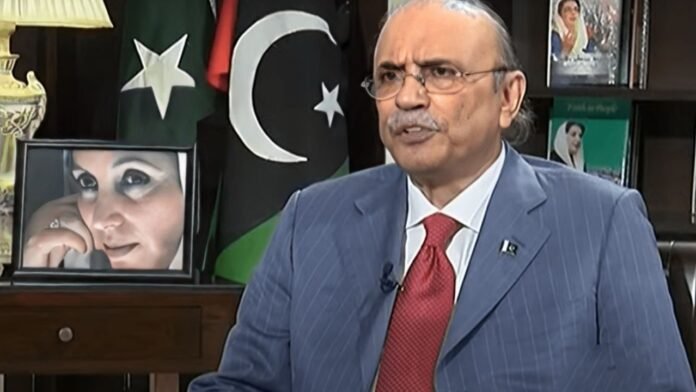President Asif Ali Zardari recently met with Rubina Khalid, the Chairperson of the Benazir Income Support Programme (BISP), to discuss its future direction. The President said during the meeting that BISP should be extended to cover more people and that an office in Gwadar must also be set up.
One of the significant issues considered was bank charges on BISP cardholders. President Zardari directed the State Bank of Pakistan to remove the 0.45% service charge that banks deducted from beneficiaries’ accounts and asked them to facilitate opening accounts for eligible persons under the income support program.
The President stressed increasing scholarships for deserving students through involvement with donors and the private sector. In response, Rubina Khalid apprised him about financial allocations made in this year’s budget. She said that the government had allocated PKR 598.718 billion for the income support program and expected the Benazir Educational Scholarships Program to benefit 9.7 million children. During the 2022 floods, BISP provided PKR 70 billion to families affected by natural calamities across Pakistan.
Reforming Federal Public Service Commission (FPSC)
In a separate meeting, the Federal Public Service Commission (FPSC), led by Akbar Hussain Durrani, met with President Zardari. He also encouraged the FPSC to use modern methods for selecting candidates and improve the civil services recruitment process.
These comments reflect his commitment to diversity and competence building at public offices in Pakistan. Where he advocated reforms to ensure transparency and meritocracy. Inclusivity throughout the recruitment exercise so that the best-qualified individuals are brought on board. Fairness is the key word here, without forgetting the efficiency part.
What stands out most is President Zardari’s drive to strengthen social welfare programs. Improve public service recruitment in Pakistan; he wants both immediate needs met with long-term structural changes undertaken for better governance. President advocates for expanding BISP to boost social safety nets and aid underprivileged communities, aiming to alleviate poverty.


